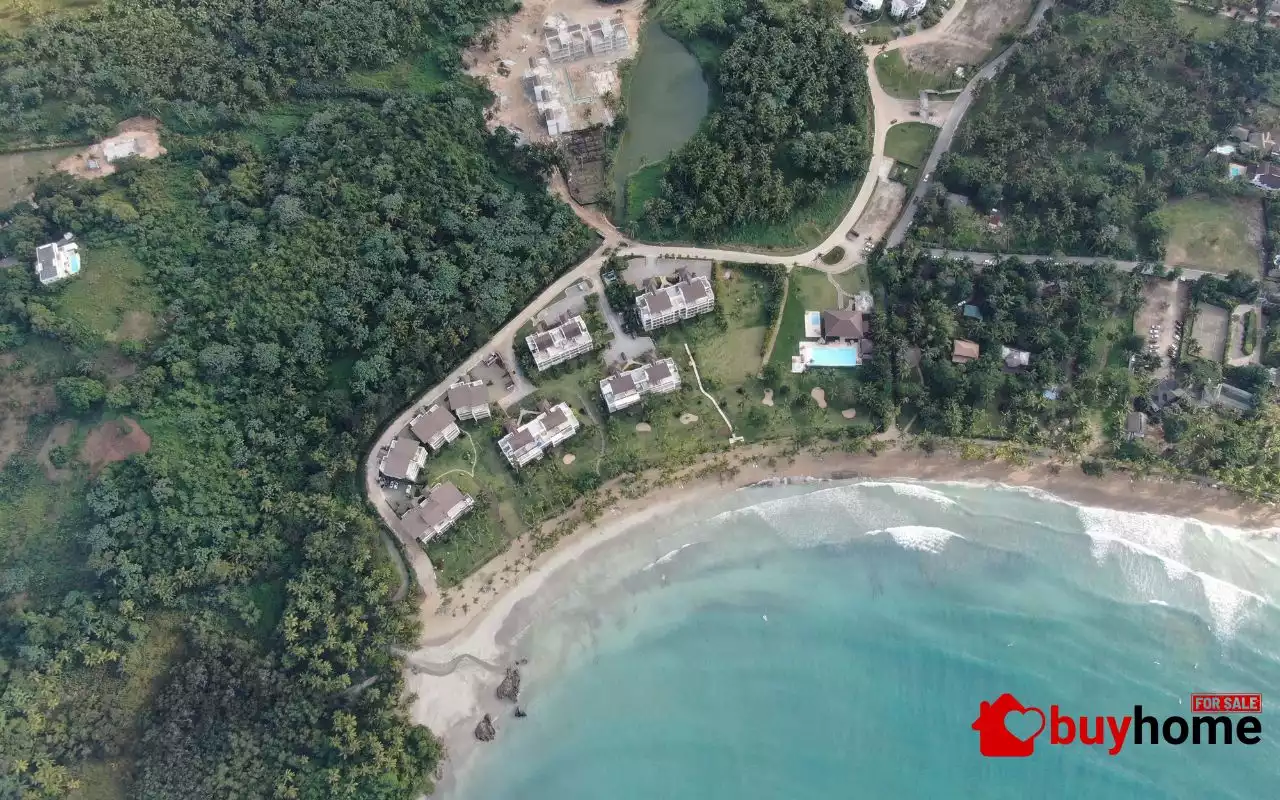📋 Table of Contents (TOC)
Introduction to Turkish Vacation Homes
Investing in Turkish vacation homes has become an attractive option for many international buyers in recent years. Turkey’s rich history, stunning landscapes, and vibrant culture make it a desirable destination for both tourists and potential homeowners. With its strategic location bridging Europe and Asia, Turkey offers a unique blend of modernity and tradition, appealing to a wide range of investors. In this blog post, we will explore the essential aspects of investing in Turkish vacation homes, including market trends, legal considerations, financing options, and more.
The allure of Turkish vacation homes lies not only in their aesthetic appeal but also in the potential for rental income and capital appreciation. As tourism continues to thrive in Turkey, particularly in coastal regions like Antalya, Bodrum, and Fethiye, the demand for vacation properties is on the rise. However, navigating the real estate market can be complex, especially for foreign buyers. Therefore, understanding the key factors involved in this investment is crucial for making informed decisions.
Understanding the Turkish Real Estate Market
The Turkish real estate market has experienced significant growth over the past decade, driven by both domestic and foreign investments. The government has implemented various incentives to attract foreign buyers, including citizenship by investment programs and reduced property taxes. This has led to a surge in interest from international investors, particularly from Europe, the Middle East, and Asia.
One of the key trends in the Turkish real estate market is the increasing popularity of vacation homes. Coastal areas, in particular, have seen a boom in property development, with numerous luxury resorts and residential complexes being built to cater to the growing demand. Additionally, urban areas like Istanbul are also witnessing a rise in vacation rentals, as more travelers seek unique accommodations during their visits.
However, potential investors should be aware of the market’s cyclical nature. While certain regions may experience rapid growth, others may face stagnation. Conducting thorough research and staying updated on market trends is essential for making sound investment decisions. Understanding local regulations, property values, and the overall economic climate will help investors navigate the complexities of the Turkish real estate market effectively.
Choosing the Right Location
When investing in Turkish vacation homes, selecting the right location is paramount. Turkey boasts a diverse range of regions, each offering unique attractions and amenities. Coastal areas like Antalya, Bodrum, and Fethiye are renowned for their stunning beaches, vibrant nightlife, and rich cultural heritage, making them popular choices for vacation properties.
Antalya, often referred to as the ‘Turquoise Coast,’ is famous for its picturesque coastline and historical sites. It attracts millions of tourists each year, making it an ideal location for rental properties. Bodrum, known for its luxurious lifestyle and vibrant social scene, appeals to high-end buyers looking for exclusive vacation homes. Fethiye, with its breathtaking natural beauty and outdoor activities, is perfect for those seeking a more laid-back atmosphere.
In addition to coastal areas, urban centers like Istanbul offer unique investment opportunities. The city’s rich history, cultural diversity, and bustling economy make it a prime location for vacation rentals. However, potential investors should consider factors such as accessibility, local amenities, and future development plans when choosing a location. Conducting thorough research and visiting potential areas can greatly enhance the chances of making a successful investment.
Legal Considerations for Foreign Buyers
Investing in Turkish vacation homes as a foreign buyer involves navigating various legal considerations. Understanding the legal framework is crucial to ensure a smooth transaction and protect your investment. Foreigners are allowed to purchase property in Turkey, but there are specific regulations and procedures that must be followed.
One of the first steps is to obtain a tax identification number from the Turkish tax office. This is necessary for any real estate transaction. Additionally, foreign buyers must ensure that the property they intend to purchase is not located in a military zone, as this can restrict ownership rights.
It is highly recommended to work with a reputable real estate agent and legal advisor who specializes in Turkish property law. They can assist in conducting due diligence, reviewing contracts, and ensuring compliance with local regulations. Furthermore, buyers should be aware of the costs associated with property acquisition, including title deed fees, notary fees, and property taxes. Understanding these legal aspects will help foreign investors navigate the process confidently and avoid potential pitfalls.
Financing Your Investment
Financing your investment in Turkish vacation homes can be approached in several ways. While some buyers may choose to pay in cash, others may require financing options to facilitate their purchase. Turkish banks offer mortgage loans to foreign buyers, although the terms and conditions may vary.
To secure a mortgage, foreign buyers typically need to provide proof of income, credit history, and a valid residence permit. The loan-to-value ratio may also differ for foreign investors compared to Turkish citizens. It is advisable to shop around and compare different banks and their mortgage products to find the best deal that suits your financial situation.
In addition to traditional bank financing, some developers may offer payment plans for off-plan properties, allowing buyers to pay in installments during the construction phase. This can be an attractive option for those looking to invest in new developments. Understanding the financing landscape and exploring various options will enable investors to make informed decisions and maximize their investment potential.
Property Management and Maintenance
Once you have invested in a Turkish vacation home, effective property management and maintenance are essential to ensure the property’s value and appeal. Many investors choose to hire property management companies to handle the day-to-day operations, especially if they do not reside in Turkey full-time.
Property management companies can assist with various tasks, including marketing the property for rentals, handling bookings, and managing guest relations. They can also oversee maintenance and repairs, ensuring that the property remains in excellent condition. This is particularly important for vacation homes, as regular upkeep is crucial for attracting guests and maintaining positive reviews.
For those who prefer a hands-on approach, establishing a reliable network of local contractors and service providers is essential. This includes plumbers, electricians, and cleaning services. Regular inspections and maintenance checks can help identify potential issues before they escalate, protecting your investment in the long run. Whether you choose to manage the property yourself or hire professionals, prioritizing property management will enhance your investment experience.
Cultural Insights for Homeowners
Understanding the cultural nuances of Turkey is vital for homeowners, especially those who plan to rent out their vacation properties. Turkey has a rich and diverse culture, influenced by its history and geographical location. Familiarizing yourself with local customs and traditions can enhance your experience as a homeowner and host.
Turkish hospitality is renowned, and many locals take pride in welcoming guests. As a homeowner, embracing this culture can create a positive atmosphere for visitors. Simple gestures, such as offering traditional Turkish tea or coffee, can leave a lasting impression on guests. Additionally, being respectful of local customs and practices will foster goodwill and enhance your reputation as a host.
Moreover, understanding the local community and engaging with neighbors can provide valuable insights into the area. This can help homeowners navigate local regulations, discover hidden gems, and enhance their overall experience in Turkey. By embracing the cultural aspects of Turkish life, homeowners can create a more enriching environment for themselves and their guests.
Potential Returns on Investment
Investing in Turkish vacation homes presents the potential for attractive returns on investment (ROI). With the increasing popularity of Turkey as a tourist destination, rental income can be a significant source of revenue for property owners. Coastal areas, in particular, tend to attract a high volume of tourists, leading to strong demand for vacation rentals.
According to recent market analyses, properties in prime locations can achieve impressive occupancy rates, especially during the peak tourist season. Investors can capitalize on this demand by offering well-maintained and appealing vacation homes. Additionally, the potential for capital appreciation over time adds to the overall investment appeal.
However, it is essential to conduct thorough market research and analyze rental trends to maximize ROI. Understanding seasonal fluctuations, pricing strategies, and marketing techniques can significantly impact rental income. By staying informed and adapting to market changes, investors can enhance their chances of achieving favorable returns on their Turkish vacation home investments.
Conclusion
Investing in Turkish vacation homes can be a rewarding venture, offering both personal enjoyment and financial benefits. By understanding the Turkish real estate market, choosing the right location, and navigating legal considerations, foreign buyers can make informed decisions that align with their investment goals. Additionally, exploring financing options, prioritizing property management, and embracing the local culture can enhance the overall investment experience.
As Turkey continues to attract millions of tourists each year, the demand for vacation properties is expected to grow. By staying informed about market trends and adapting to changes, investors can position themselves for success in this dynamic market. Whether you are seeking a personal retreat or a lucrative rental property, investing in Turkish vacation homes can provide a unique opportunity to enjoy the beauty and culture of this remarkable country.



